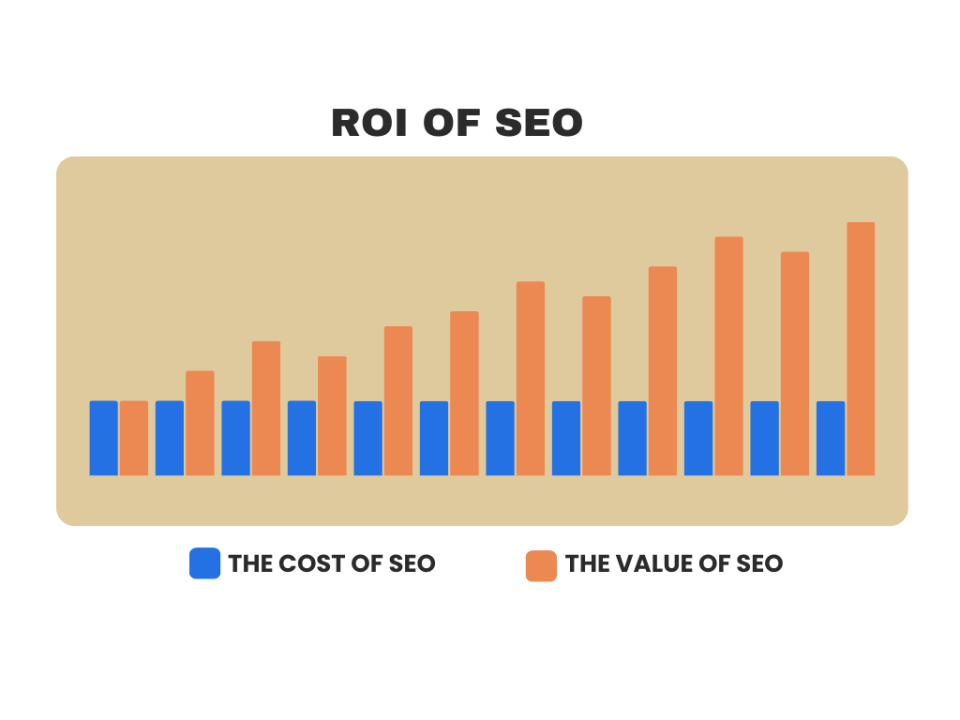In today’s digitally-driven world, where the online marketplace is becoming increasingly competitive, businesses must explore every avenue to stand out and thrive. One of the most powerful tools in their arsenal is Search Engine Optimization (SEO). Often regarded as the cornerstone of digital marketing strategies, SEO offers businesses a pathway to enhance their online visibility, attract more qualified leads, and ultimately drive revenue growth. In this article, we delve into the undeniable ROI of SEO and how investing in it can fuel significant business expansion.
Understanding the Foundations of SEO
Before diving into the ROI of SEO, it’s essential to understand its fundamentals. SEO encompasses a range of strategies and techniques aimed at improving a website’s ranking on search engine results pages (SERPs). This involves optimizing various elements such as website content, meta tags, keywords, and backlinks to align with search engine algorithms and user intent. By enhancing these elements, businesses can increase their chances of appearing prominently in relevant search queries, thereby attracting organic traffic to their websites.
Driving Qualified Traffic
One of the primary benefits of SEO is its ability to attract highly targeted and qualified traffic to a website. Unlike traditional advertising methods that rely on broad audience targeting, SEO allows businesses to reach users actively searching for products or services related to their offerings. By optimizing for relevant keywords and creating high-quality, informative content, businesses can position themselves as authoritative sources within their industry. As a result, the traffic generated through SEO tends to be more engaged and likely to convert into leads or customers.
Building Brand Credibility and Trust
In the digital landscape, where consumers have countless options at their fingertips, establishing credibility and trust is paramount for business success. A strong SEO presence can significantly contribute to building brand authority and trustworthiness. When a website consistently appears at the top of search results for relevant queries, users are more likely to perceive it as a reputable and reliable source. Additionally, SEO strategies such as obtaining backlinks from reputable websites and optimizing for mobile responsiveness further enhance a brand’s credibility in the eyes of both users and search engines.
Measuring the ROI of SEO
While the benefits of SEO are undeniable, measuring its return on investment (ROI) can be somewhat challenging due to the complex nature of digital marketing metrics. However, there are several key indicators that businesses can track to gauge the effectiveness of their SEO efforts:
- Organic Traffic Growth: Monitoring the increase in organic traffic to your website over time provides valuable insights into the impact of SEO on driving visibility and engagement.
- Keyword Rankings: Tracking the rankings of target keywords on SERPs allows businesses to assess their progress in optimizing for relevant search queries.
- Conversion Rate: Analyzing the percentage of website visitors who complete desired actions, such as making a purchase or filling out a contact form, provides insights into the quality of traffic generated through SEO.
- Revenue Growth: Ultimately, the most significant indicator of SEO ROI is its contribution to revenue growth. By attributing conversions and sales to specific SEO initiatives, businesses can quantify the financial impact of their investment in SEO.
Conclusion
In conclusion, the ROI of SEO extends far beyond mere metrics and statistics. By investing in search engine optimization, businesses can unlock a multitude of benefits that drive sustainable growth and success in the digital landscape. From attracting qualified traffic and building brand credibility to measurably increasing revenue, the value of SEO as a strategic investment cannot be overstated. As competition continues to intensify in the online marketplace, businesses that prioritize SEO stand poised to not only survive but thrive in an increasingly competitive landscape.


